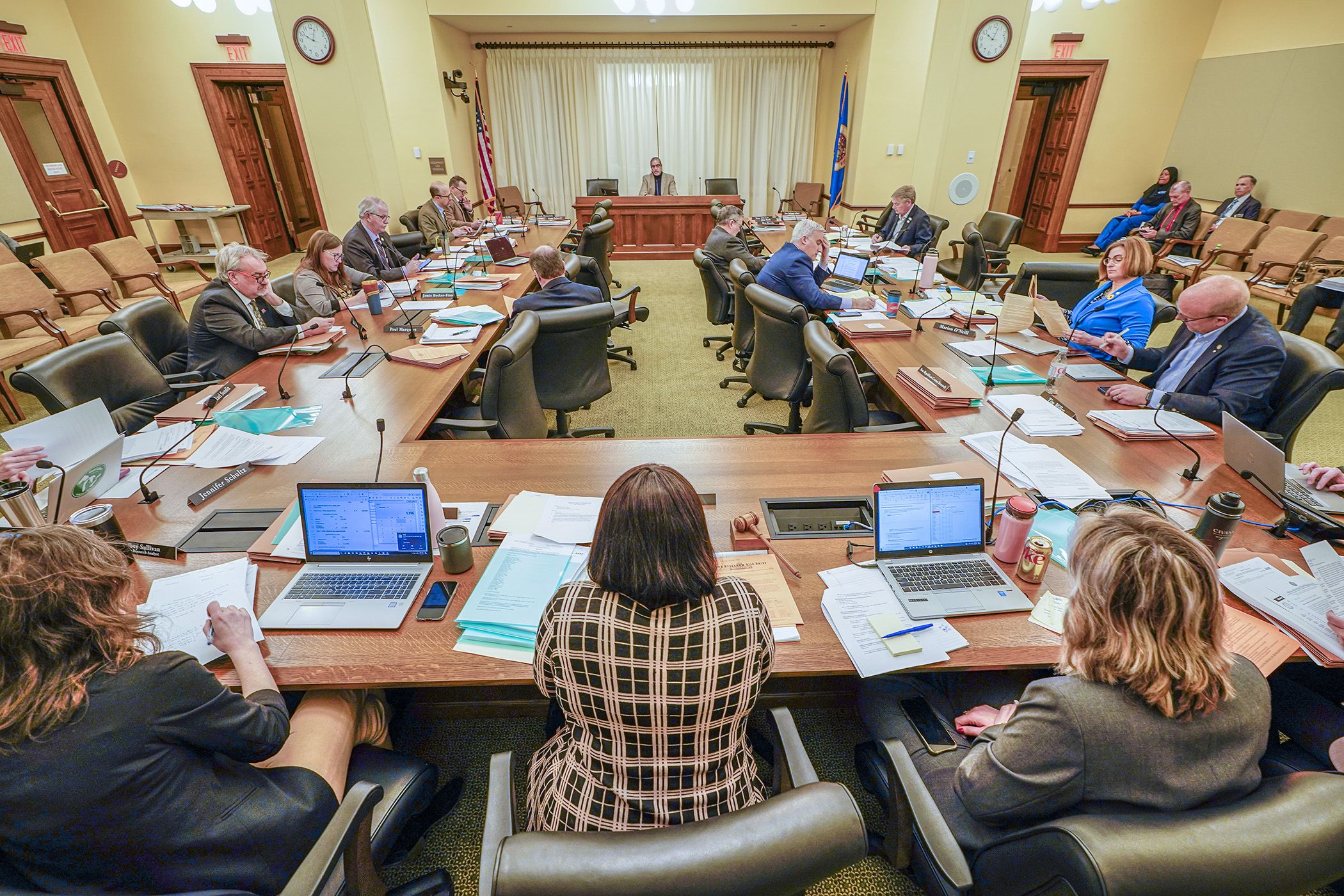Combined judiciary, public safety omnibus bill heads to House Floor

The omnibus judiciary and public safety bill advanced to the House Floor Monday, but because it differs so much from the Senate’s bill, what version of judiciary and public safety legislation that may reach the governor’s desk remains a big unknown.
HF4608, sponsored by Rep. Carlos Mariani (DFL-St. Paul) — combined with HF3920 (itself amended by adding the language in HF1404) and as amended — was approved by the House Ways and Means Committee on an 18-9 party-line vote.
By combining the omnibus judiciary and public safety bills, the House bill will better match the Senate version being considered Monday.
Although the two omnibus bills are aligned structurally, the House and Senate bills contain very different financial and policy proposals.
The House bill, as amended, focuses on community-based crime-prevention programs, including grants for prevention, intervention, mental health and wellness of at-risk juveniles, plus police accountability reforms, such as extending the civil statute of limitations for bodily offenses committed by law enforcement officers, and a requirement that police officer body camera footage be released to families within five days after a deadly force incident and to the public within 14 days.
Sponsored by Sen. Warren Limmer (R-Maple Grove), SF2673 focuses on tougher penalties for crimes, especially violent crimes, such as carjacking and the killing of a police officer, increased funding for recruitment and retention of police officers, a repeal of the five-year cap on probation terms, and a requirement that county prosecutors provide data on felony cases they decline to charge.
The total numbers are divergent too, with the House proposing to appropriate $340 million in the 2022-23 biennium and the Senate proposing $206 million.
[MORE: View the separate House public safety and judiciary spreadsheets]
Notable judicial policy and finance provisions
The judiciary portion of the House bill would appropriate $140 million more in the 2022-23 biennium, with $50 million going to fund public defenders and $47.8 million for Civil Legal Services (Legal Aid).
Rep. Jamie Becker-Finn (DFL-Roseville) said the bill would take steps to correct years of underfunding the judicial branch that has left it unable to fulfill its constitutional duties to provide legal services to anyone unable to pay for them.
“Whether your constitutional rights are upheld or not should not be determined by your access to wealth,” said Becker-Finn, who chairs the House Judiciary Finance and Civil Law Committee and sponsors HF1404 and HF3920, both now in the House omnibus bill.
Judges across the state would get a pay increase of up to 6%, with the exact amount determined by the money left over after judicial staff first receive a 6% salary increase. Both judges and judicial staff have been “chronically underfunded” for decades, Becker-Finn said.
Notable public safety policy and finance provisions
Of the additional $200 million that would be appropriated for public safety programs in the 2022-23 biennium, $150 million would fund what Mariani called the Public Safety Innovation Act.
“The core of this bill is innovation,” said Mariani, chair of the House Public Safety and Criminal Justice Reform Finance and Policy Committee.
Mariani touted new ways the bill would adopt several different approaches, including creative ways to help law enforcement meet current staffing challenges, increase crime prevention efforts, help offenders reintegrate into society after release from prison, and address accountability issues when law enforcers break the law.
Legislation to increase criminal penalties remains important, Mariani said, noting that the bill would strengthen labor trafficking laws, would fund local law agencies to fight sex trafficking, and has measures to improve the ability to hold people committing domestic violence accountable.
Republicans said too much of the $200 million in public safety spending would go to untested, unsupervised, community crime-prevention groups, and not enough to support crime victims and the recruitment and retention of law enforcement officers.
“This is not a public safety bill,” said Rep. Brian Johnson (R-Cambridge). “It does not hold those who commit crimes accountable.”
Johnson said he is disappointed that so few dollars would be appropriated to hire more forensic analysts and investigators in the Bureau of Criminal Apprehension to combat the recent increase in violent crime across the state, but especially in the Twin Cities metropolitan area.
“This bill is going to do nothing for public safety” without adequate support going to the BCA to aid in criminal investigations, Johnson said.
More details on the contents of the three House bills comprising the now combined omnibus public safety and judiciary bill are in Session Daily stories published online when the bills received committee approval: judiciary policy (March 31), judiciary finance (April 7) and public safety (April 7).
Related Articles
Search Session Daily
Advanced Search OptionsPriority Dailies
Speaker Emerita Melissa Hortman, husband killed in attack
By HPIS Staff House Speaker Emerita Melissa Hortman (DFL-Brooklyn Park) and her husband, Mark, were fatally shot in their home early Saturday morning.
Gov. Tim Walz announced the news dur...
House Speaker Emerita Melissa Hortman (DFL-Brooklyn Park) and her husband, Mark, were fatally shot in their home early Saturday morning.
Gov. Tim Walz announced the news dur...
Lawmakers deliver budget bills to governor's desk in one-day special session
By Mike Cook About that talk of needing all 21 hours left in a legislative day to complete a special session?
House members were more than up to the challenge Monday. Beginning at 10 a.m...
About that talk of needing all 21 hours left in a legislative day to complete a special session?
House members were more than up to the challenge Monday. Beginning at 10 a.m...